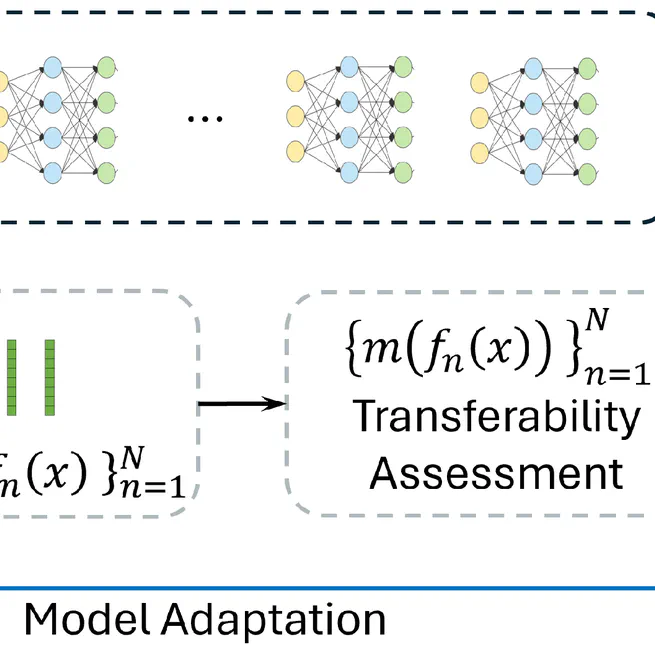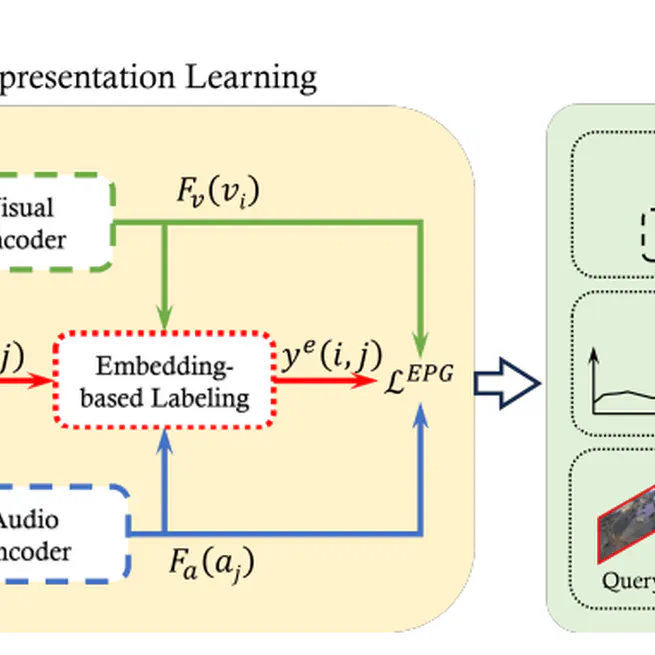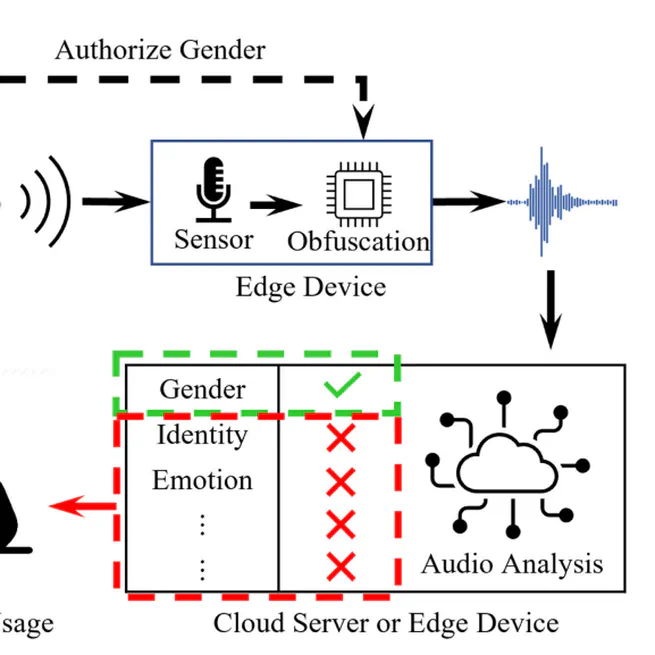
A source-free unsupervised transferability assessment based on RINN and embedding similarity tailored for surveillance data to identify optimal general-purpose model for adaptation.
Jun 20, 2025

To address the challenges of false negatives and information bottlenecks in audio-visual contrastive learning for smart city surveillance, this work proposes a novel method that generates semantically synchronized pairs via cross-modal embedding distance, yielding general-purposes representations that achieve competitive performance on multiple downstream tasks.
Jan 13, 2025
A novel approach for training video obfuscation models without requiring sensitive labels, enhancing privacy in visual analysis tasks.
May 4, 2024

To address the privacy risks of audio applications extracting unauthorized user data, this work proposes an on-edge data obfuscator trained through adversarial learning, which uniquely operates on an opt-in permission model to protect sensitive speaker attributes while maintaining compatibility with existing recognition algorithms and incurring minimal accuracy degradation.
Oct 1, 2022
This paper proposes a new personal-based hierarchical driver monitoring system (HDMS) that outperforms existing methods by first detecting abnormal driving behavior based on personalized models and then classifying it as either drowsy or distracted.
Jan 27, 2019
This paper introduces USEAQ, a novel and highly efficient one-pass method for superpixel extraction that uses adaptive sampling from quantized regions to generate regular and compact superpixels, achieving performance that is comparable or superior to state-of-the-art approaches while being significantly faster.
Oct 1, 2018
This paper presents a novel annotation placement method for surveillance videos that treats the problem as an optimization of spatiotemporal coherence between annotations and foreground objects, effectively solving it with Markov random fields to prevent occlusions and achieve superior results compared to state-of-the-art approaches.
Mar 1, 2018